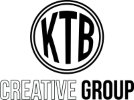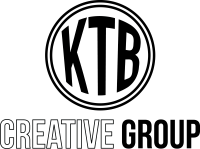Marketing your business is not unlike marketing a horse in your barn. Here are a few ways you can take what you already do to sell a horse and translate it into tools to market your company.
1. People stop scrolling for the flashy photos, and stay for the substance.
You’ve seen the blurry photos taken of muddy horses, half in the frame with a tangle of mane. Odds are good you barely slowed down to read anything about that horse, let alone thought to reach out. The same goes for marketing a business! If you’re using outdated imagery or difficult-to-read fonts on any of your marketing material, you’re not putting a professional face on your company. You want a potential customer’s first view to be impressive enough to draw them in, and for the right information to be easy to find and understand once they begin to delve into what you offer. Be the freshly bathed, braided, and professionally photographed sale ad!
2. Clear, concise information reduces tire kickers.
The more information you provide in a sale ad, the more people you stop from contacting you about a horse they can’t ride or can’t afford. Giving pertinent details about a horse, such as location, age, ability, preferred discipline, cost, and any limitations, can help both buyers and sellers save time.
When marketing your company, it’s equally important to provide the information your prospective customers need to know. What products you offer, what services you provide, where are you located – all things that customers should be able to find in the first minute or two of looking at your website. This can help them to know if you’re located in their area or provide the service they’re looking for without playing phone tag or having to exchange endless emails.

3. Reputation matters.
In the horse world, your reputation can make or break your business. If you’re selling horses that always turn up lame within a week of arrival at their new homes, people may choose to direct their clients away from you. On the other hand, if you have an honest practice of disclosing information when selling a horse and consistently make good matches between horse and rider, agents and trainers may start to seek you out when clients are looking for a new horse.
Similarly, a company with only negative reviews is less likely to see a stream of new clients or customers. Consumers read reviews and trust testimonials to determine if a product is worth purchasing. Soliciting reviews from happy customers and workly quickly to resolve any poor experiences can help improve your image and build a network of people willing to recommend your goods or services.
4. Respond in a timely fashion.
The fast turnover in the horse market emphasizes the importance of being on top of communication. If you wait to respond to inquiries about a sale horse, you’ll lose quality buyers who have already moved on to other options.
Your business works just the same. Customers prefer companies who openly communicate and respond to consumer requests and needs. If someone reaches out with questions or concerns, provide a timely, polite response. Having a professional face on every customer interaction will help build your reputation as a trustworthy organization and can foster a community that will extend your brand’s reach.
5. Use all the tools at your disposal.
While word of mouth is a great way to advertise some horses, you can cast a wider net when you invest in all the tools at your disposal. Horse sale websites, social media platforms, and show flyers can all help to get the word out about your sale horses.
You won’t want to advertise your business solely by word of mouth either. Having a strong digital presence is the best way to build your company and expand your reach. If you don’t have time to develop this presence, there are social media managers you can hire with the experience to optimize your social platforms to meet your marketing targets.
6. Have a plan.
When you set out to sell a horse, you should already have a number in mind for optimal sale price, as well as the lowest offer you would accept for the right home. While this can change based on what is found in a vetting, these numbers can guide you in the sale process.
Marketing also requires developing a plan to outline your targets and goals. You should develop your marketing strategy, understand your goals for each segment of your strategy, and frequently check in to tweak things when needed.


